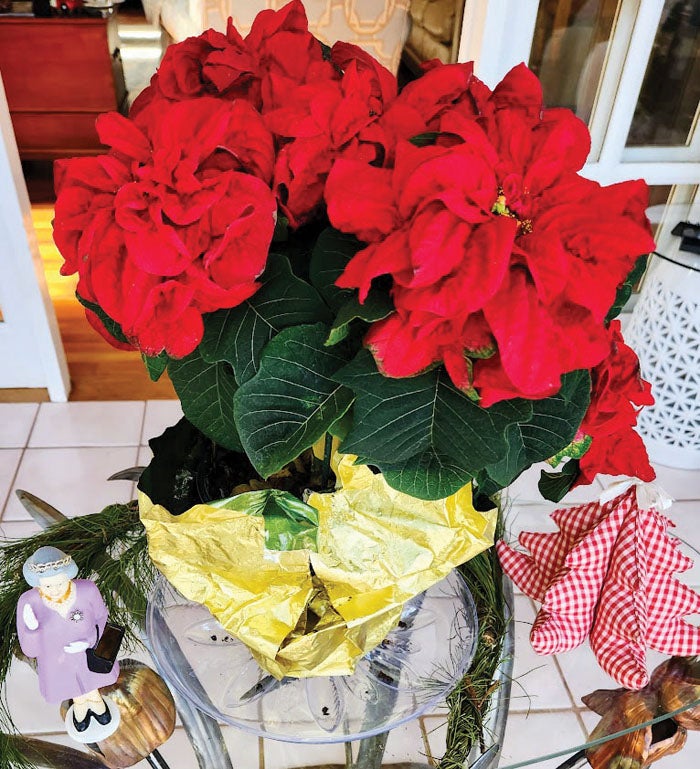Darrell Blackwelder: It is possible to keep poinsettias for the next season
Published 12:00 am Saturday, December 24, 2022

- It’s possible to cultivate poinsettias to bloom the following season.
One of the questions asked each Christmas holiday is if you keep poinsettias for the next season. These plants can be over-wintered and used next year, but it’s going to be a challenge. It’s important to place the plant in a sunny location and continue to water it regularly while it’s growing.
It’s best to take the plant outdoors in late spring once the night temperature remains above 50 degrees. Fertilize the plant every two to three weeks throughout the growing season with a well-balanced water soluble fertilizer. In early June, transplant the poinsettia into a container 2 to 4 inches bigger than the original pot. Use a soil mix containing a considerable amount of organic matter, such as compost, leaf mold or peat moss. Pinch back the shoot tips or prune back the branches to keep the plant compact. Do not pinch back after Sept. 1. When night temperatures become cool, 55 to 60 degrees in September, bring the plant indoors to a sunny location.
Poinsettias will flower the next year if you follow a few procedures. The poinsettia is a short-day plant, meaning it needs a continuous long dark period each night to form its colorful bracts. Starting the first week of October, for the next 10 weeks the plant must be kept in total darkness for 14 continuous hours each night. One method is to move the plant to a closet or covering it with a large box. It’s a much easier process to locate the plant in a room that never gets light at night. During this period, the plant must also receive six to eight hours of bright sunlight daily. Depending on the response time of the particular cultivar, the plant should into full bloom during November or December.
Again, keeping a poinsettia for next years’ Christmas season will take a dedicated gardener. Many enjoy the challenge while others stimulate the local economy with new plants each year.
Darrell Blackwelder is the retired horticulture agent and director with the North Carolina Cooperative Extension Service in Rowan County. Contact him at deblackw@ncsu.edu.



